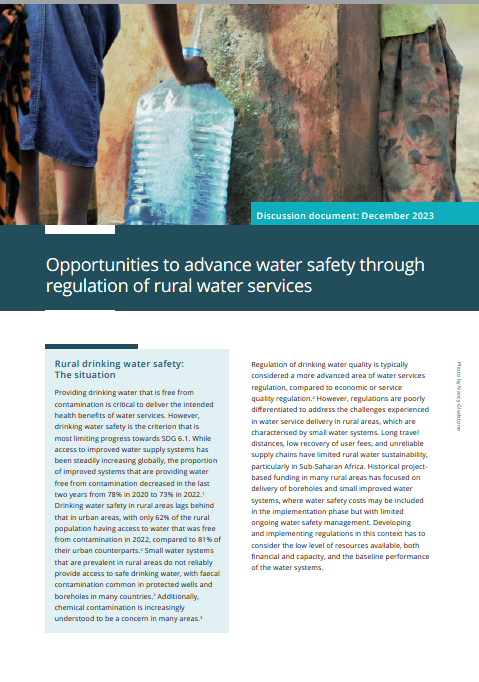Katrina Charles, Saskia Nowicki, Michael Rouse, Sara Marks, Annabelle Edwards, Batsirai Majuru, Emdadul Hoq Chowdhury, Richard Cheruiyot, Robert Gakubia, Duncan McNicholl, and Nurul Osman
Regulation of drinking water quality is typically considered a more advanced area of water services regulation, compared to economic or service quality regulation. However, regulations are poorly differentiated to address the challenges experienced in water service delivery in rural areas, which are characterised by small water systems. Long travel distances, low recovery of user fees, and unreliable supply chains have limited rural water sustainability, particularly in Sub-Saharan Africa. Historical project based funding in many rural areas has focused on delivery of boreholes and small improved water systems, where water safety costs may be included in the implementation phase but with limited ongoing water safety management. Developing and implementing regulations in this context has to consider the low level of resources available, both financial and capacity, and the baseline performance of the water systems. Supportive regulatory approaches are needed to build capacity and encourage iterative improvements towards the delivery of safe drinking water, including advancing water safety planning under increasingly variable conditions driven by climate change.
This discussion document by government, regulators, service providers and researchers, drawing particularly on experiences in Bangladesh, Kenya, England and Wales, highlights four principles:
1. Regulatory models must reflect that water service provision is changing
2. Scaling regulation to rural systems requires differentiated approaches
3. Regulation needs to incentivise improvement in water safety
4. Effective implementation requires building shared value

